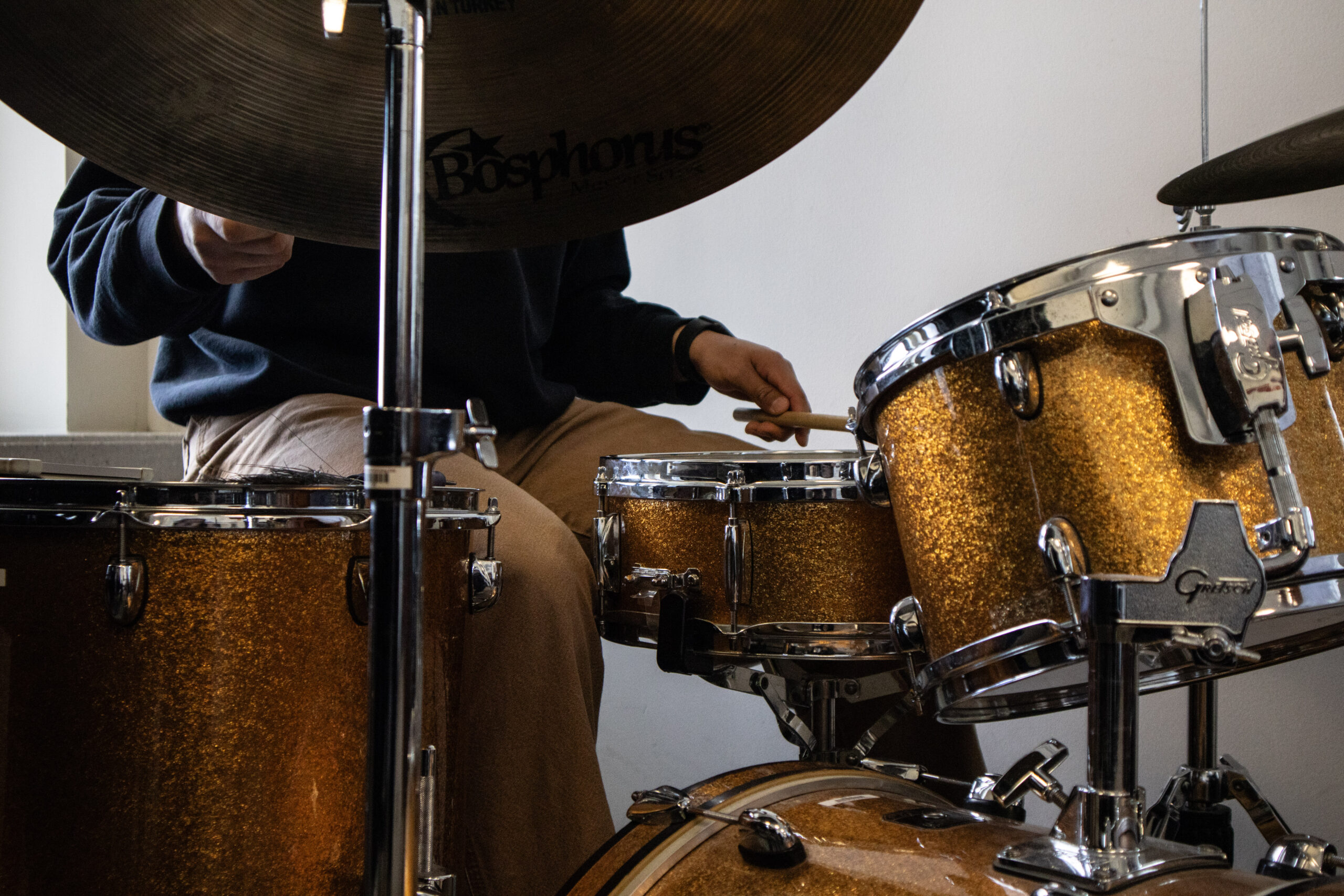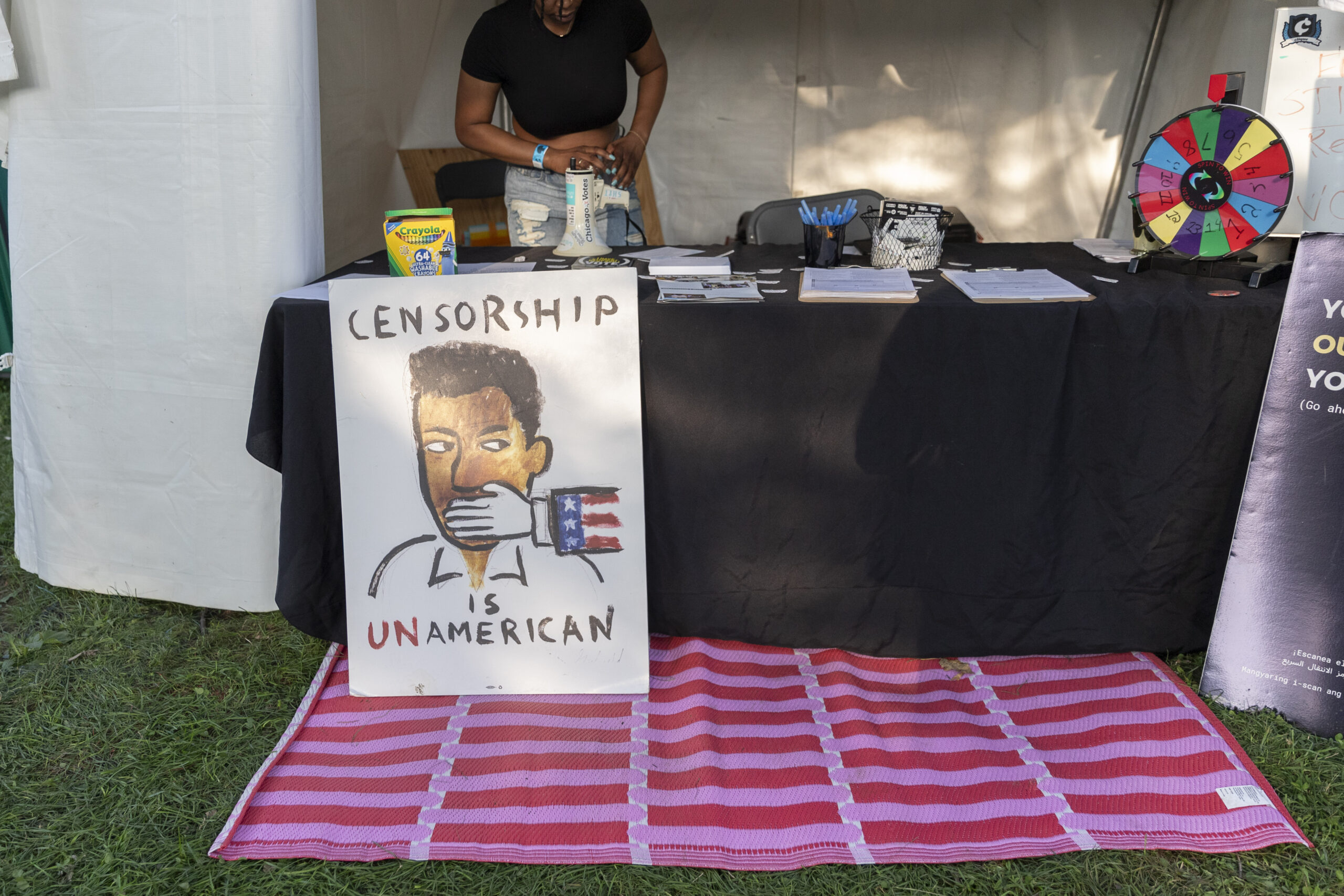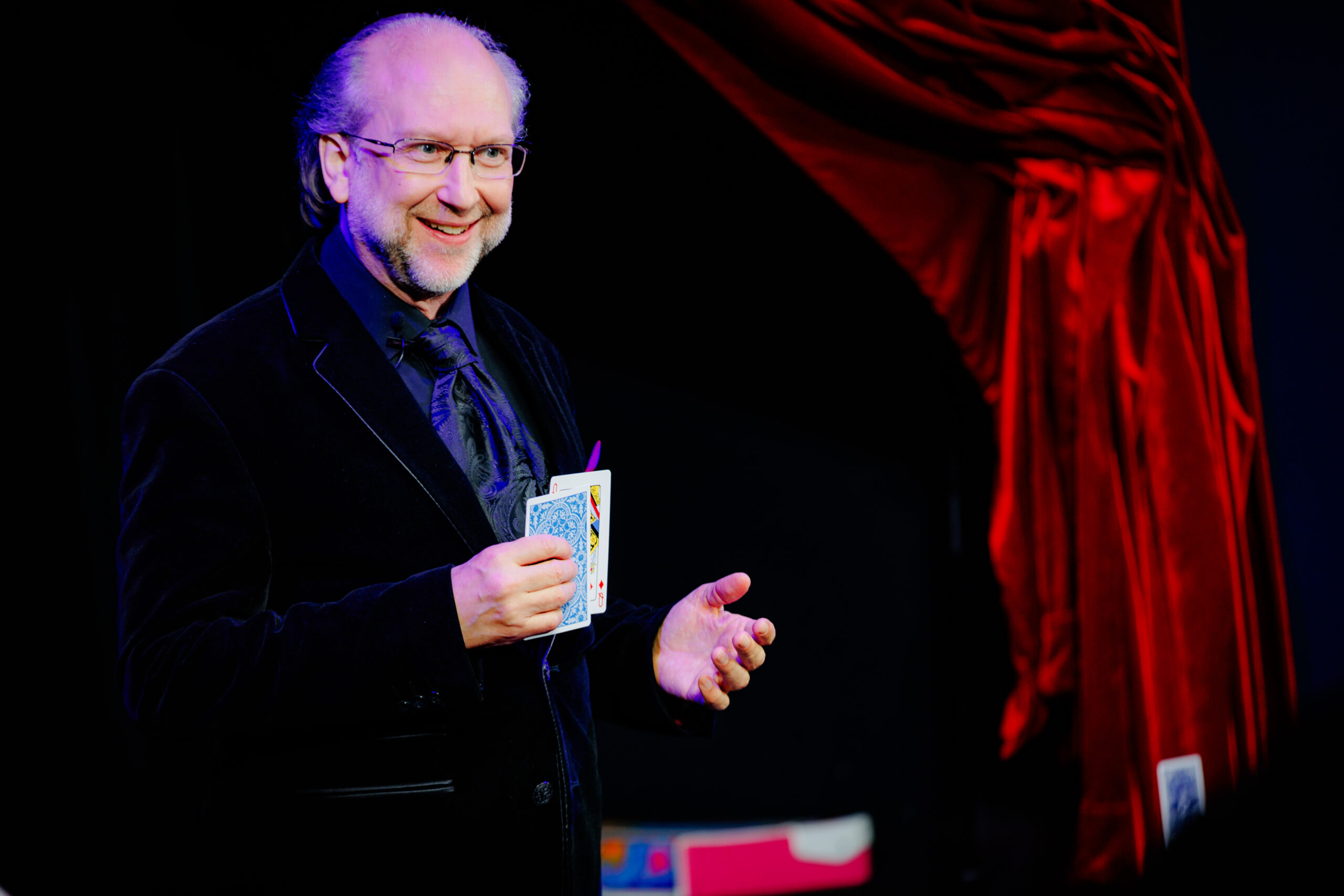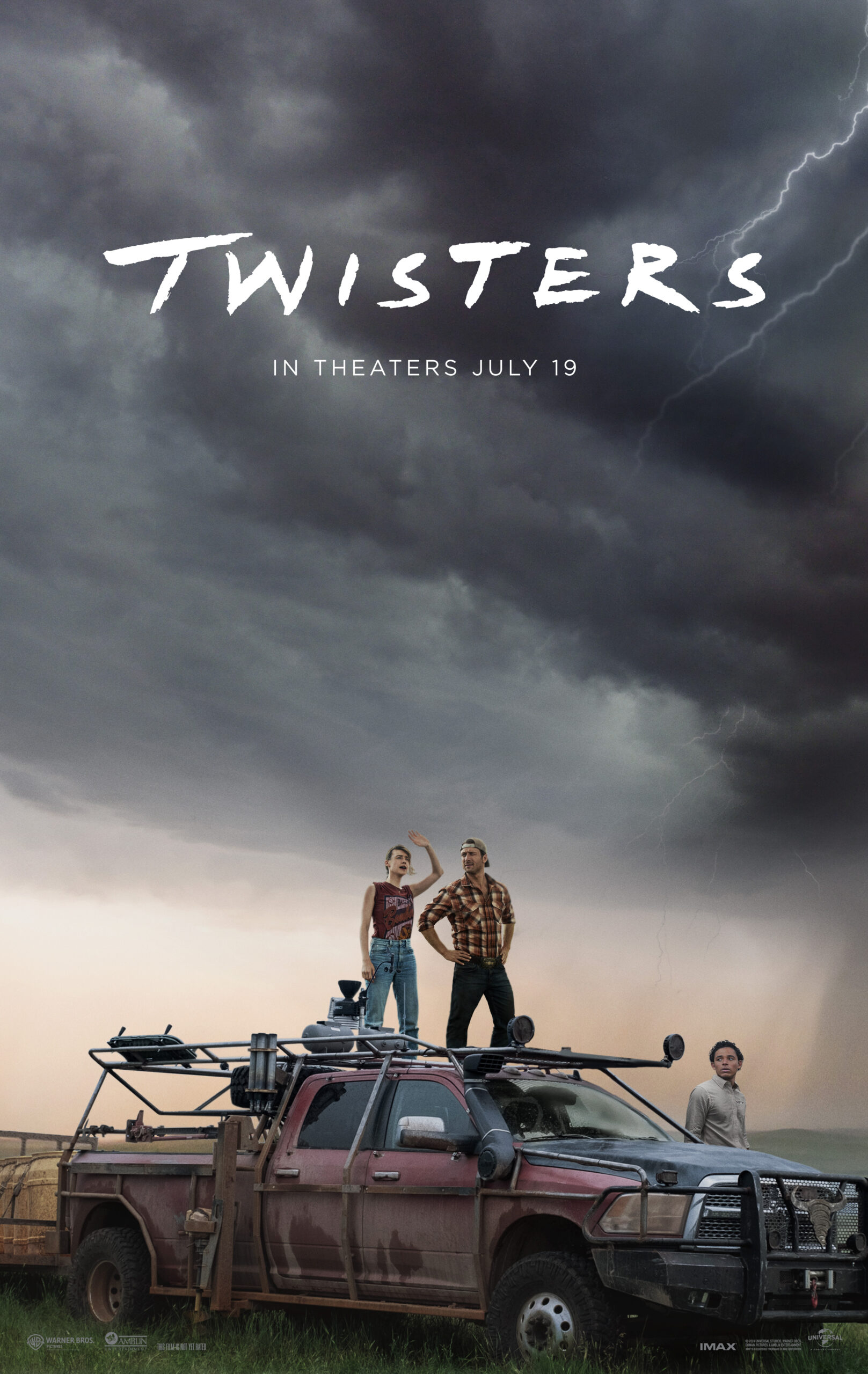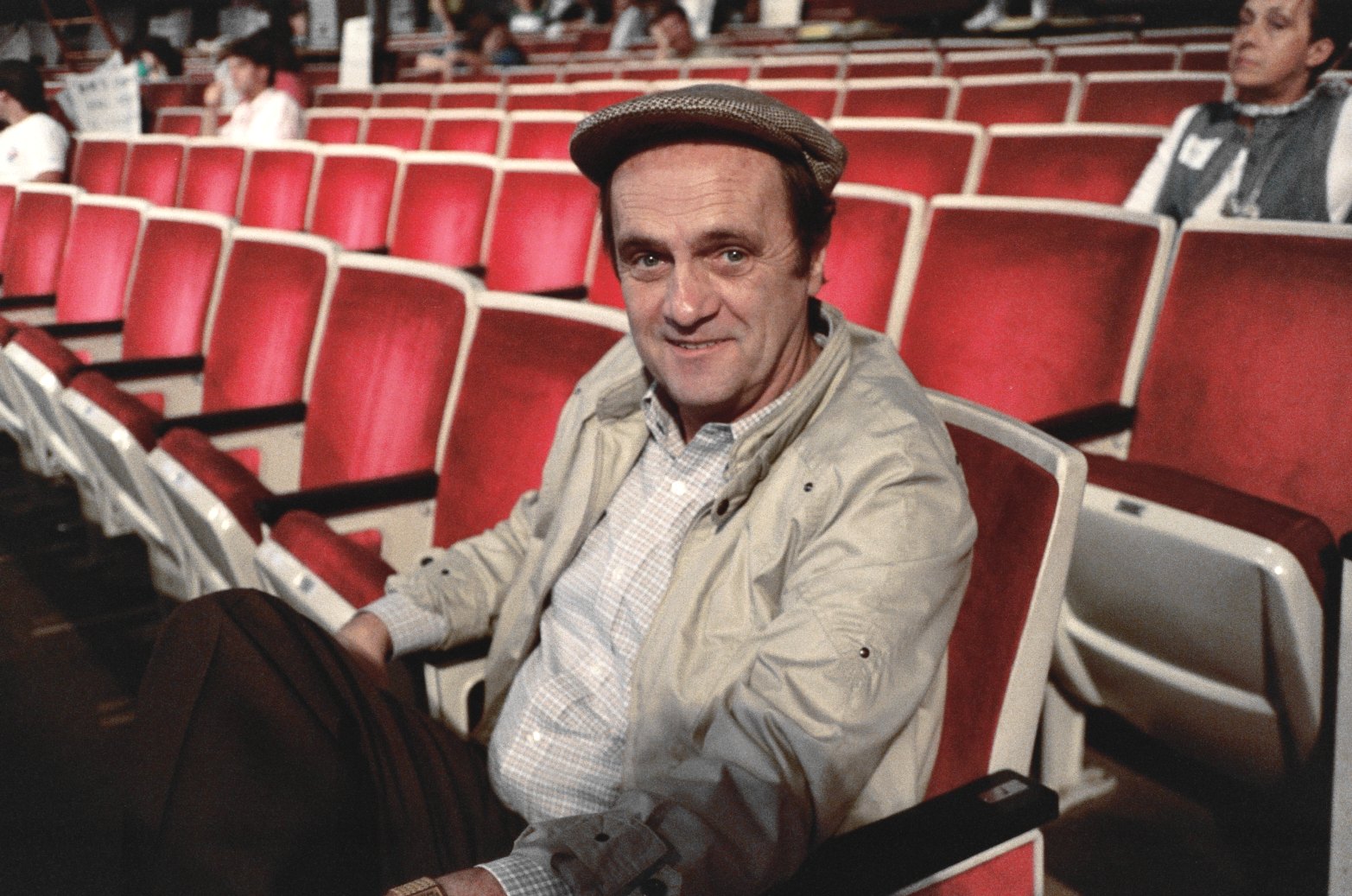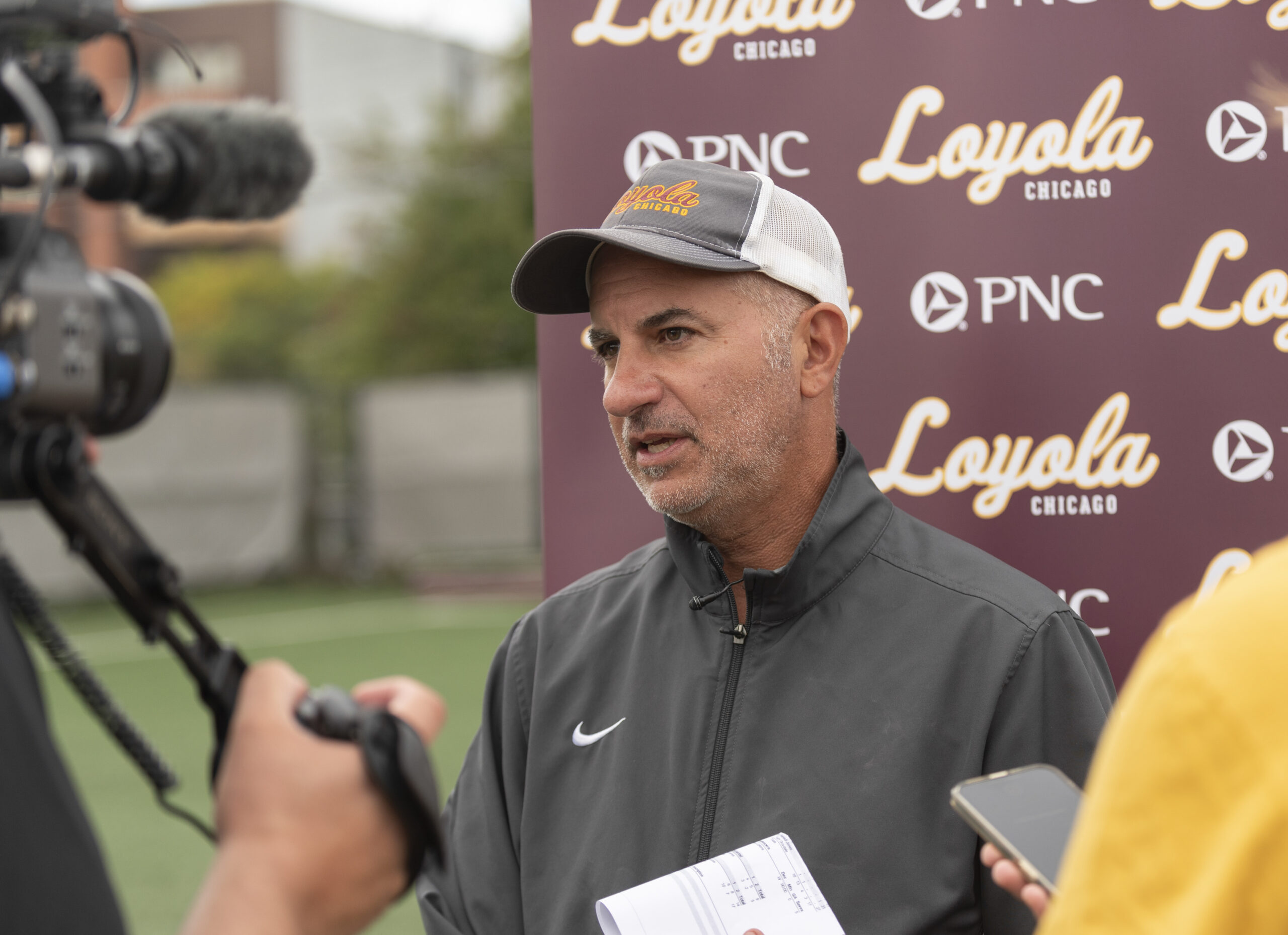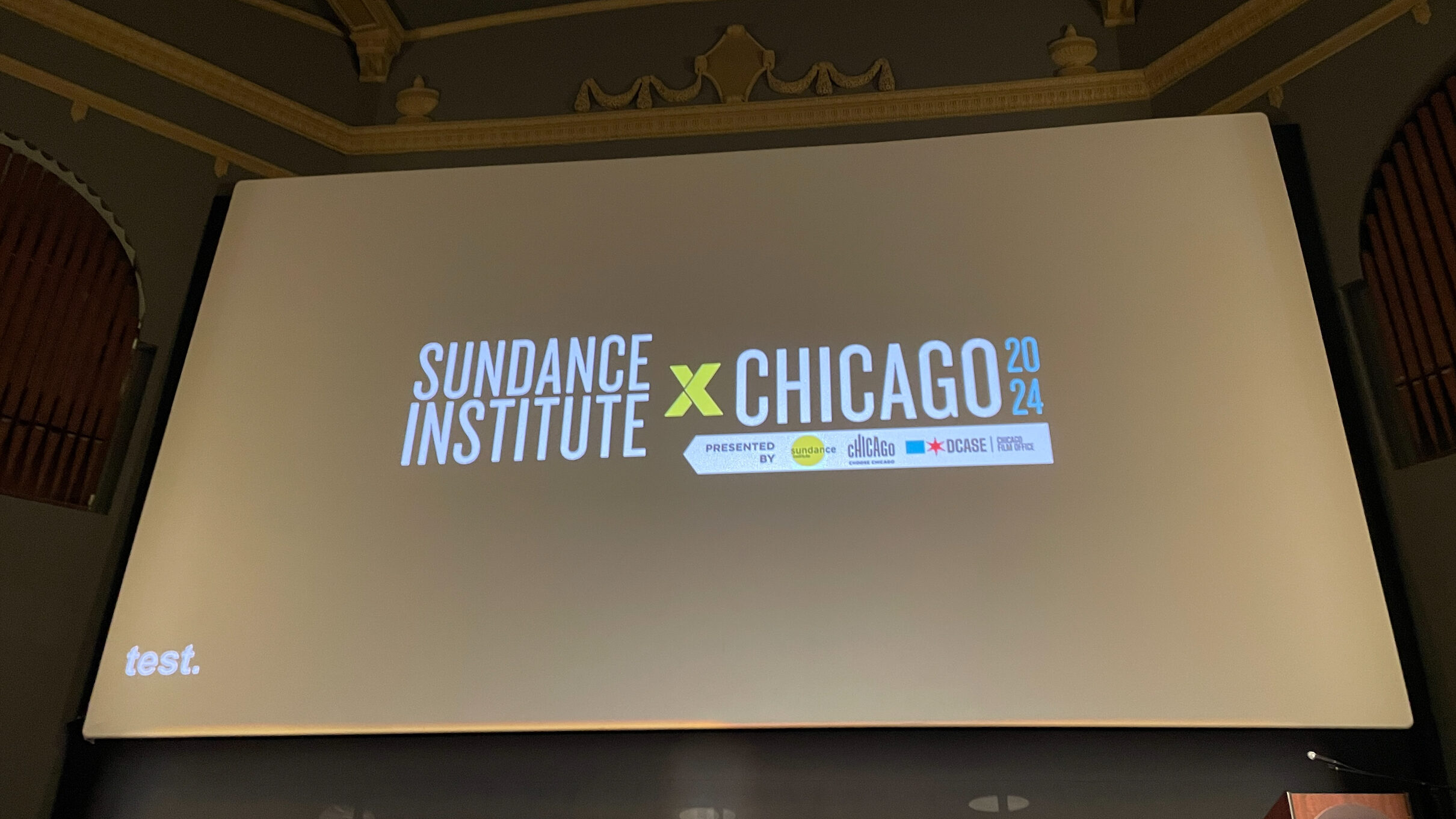Loyola’s jazz combo class performs two showcases at the end of each semester.
A bassist, saxophonist and vocalist walk into a bar — Ireland’s Pub 10.
These performers are one of many in the music department’s jazz combo class, a one credit course led by professor Chris Madsen and other jazz instructors, including professor Alex Beltran on the saxophone.
At the end of each semester, the group performs a showcase at Ireland’s, alongside one other showcase in the Newhart Family Theatre.
But before they even reach the bar, the group can be found practicing on the 10th floor of the Mundelein Center for Fine and Performing Arts. Those getting off the elevator at the right time can be serenaded by muffled jazz — following the noise down a winding hallway will lead to room 1015.
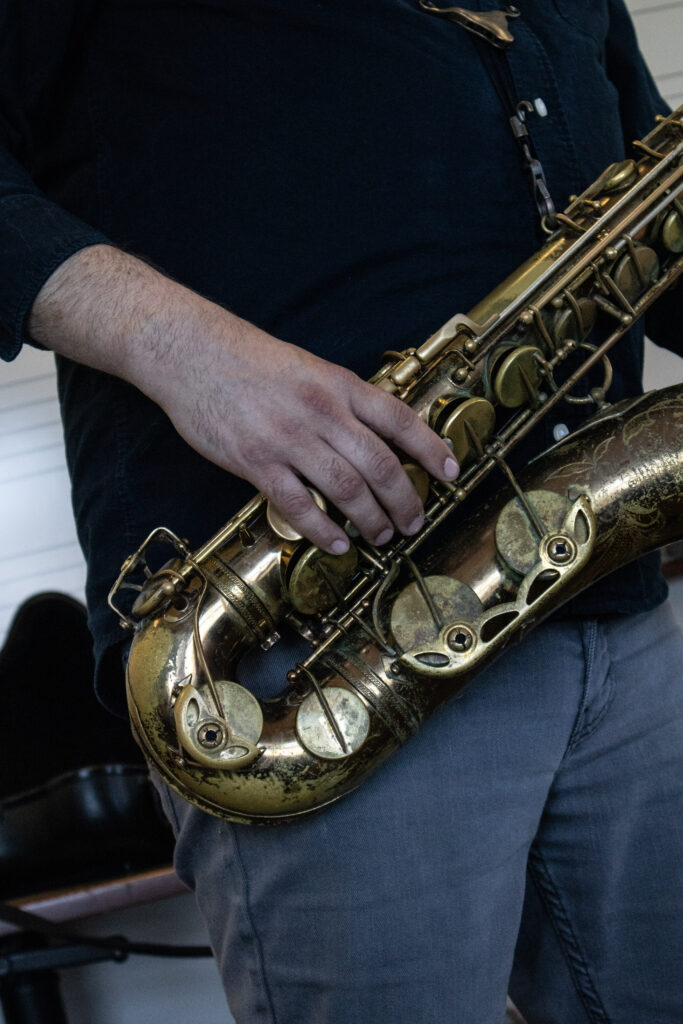
Students can take the class as many or few times as they wish and have the opportunity to audition for jazz “combos” — groups of musicians placed together by Madsen. Fourth-year trombonist Asha Egmont, who has been in the jazz combo class for six semesters, felt a positive difference when playing at Loyola.
“I felt like I had found a little hole here, like a little place for me to fit my little puzzle piece,” Egmont said. “It changed the rest of my college career.”
Madsen echoed the sentimentality of the club, joining Loyola as the coordinator of jazz studies last spring. He says his time so far has been “extremely rewarding.”
“I mean, I don’t want to talk badly about my former employers or anything like that, but I noticed a real sense of community, camaraderie, when I got here,” Madsen said.
The combos are tailored for musical diversity, most having at least a drummer and bassist but varying in pianists, brass and singers. Each is led by a jazz professor who plays with them and meets for one hour a week based on availability.
Erin Gray, a vocalist who has taken the class for two semesters, agreed that the collaborative nature of the class, and jazz as a whole, fostered the relationships she’s built in the jazz community.
“When you play this music together, it feels natural to collaborate and support each other,” Gray said of her time playing in the combos. “When you do fun stuff with a group of people you want to play more, and we end up becoming really good friends.”
Madsen, who plays with some of the combos as well as creating them, has noticed this positive collaboration and believes it speaks to the music being made as well as the quality of the musicians.
“It’s just very heartwarming to see the students form those relationships,” Madsen said. “The music is about being selfless and communicating with each other. You see that reflected, I think, in the people that play it, too.”
Part of jazz’s collaborative nature comes from the spontaneity required in the genre. A key element differentiating jazz combo from jazz ensemble is the focus on improvisation in the combos.
Joey Daso, a second-year jazz studies and mathematics double major, said jazz’s improvisational elements are his favorite part of playing.
“It doesn’t really belong on the page,” Daso said. “Being able to hear a feel — there’s so much you can do when you’ve stepped away from the page, but you have to learn how to do that.”
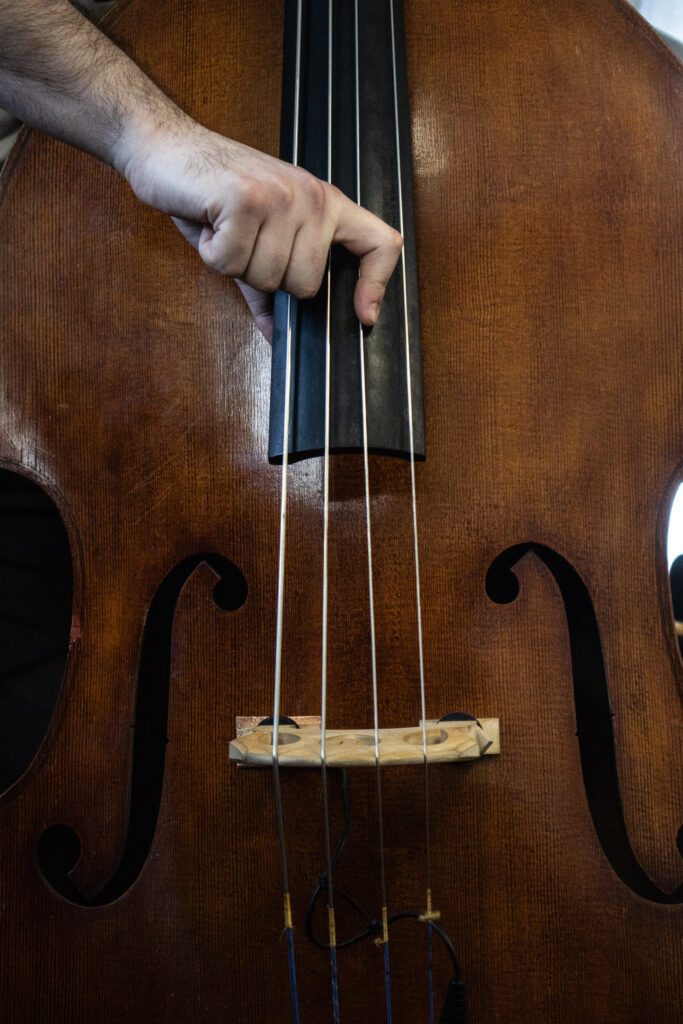
“Usually the atmosphere within our little circle on stage is energetic and sparkly,” Egmont said. “We’re just there to be with each other and to connect and to try and make something together, and that’s awesome. That’s the ideal. That’s how you want it to feel.”
Daso said his performances at Ireland’s “blend together” over the four semesters he’s taken the class — but he always remembers the audience.
“I don’t get nervous at Ireland’s, I can say that much,” Daso said. “It’s the farthest thing from intimidating. I can only picture them smiling.”
However, neither Ireland’s or Jo Ann Rooney Hall — the music program’s official rehearsal space — possess good sound quality or proper equipment in the sound system, for playing jazz, according to Daso and Gray.
When asked about the state of the equipment in Ireland’s, vice president of operations Terina Patrick said, “Ireland’s employees only have jurisdiction within the bar itself. The surrounding tables, pool tables, piano, and mics all belong to Damen. Students who have questions or concerns should direct it towards the Damen staff, as Irelands is not responsible for those things within the space.”
“Jo Ann Rooney Hall, famously, in the music program, has terrible acoustics and terrible sound quality,” Gray said. “That’s our music performance space, but it is so unfit for music.”
The jazz showcase is held at Newhart Theater, which has good sound quality, according to Gray, but is the theater program’s space, not the music program’s.
“So they’re really supporting the musicians, but I don’t think they’re supporting the music,” Daso said. “I feel like here at my time at Loyola, I’ve become a really good jazz performer,” Daso said. “But I haven’t had that many really good jazz performances — and I think that’s where the difference lies.”
No matter the quality of the equipment or spaces, the jazz players at Loyola play on — for each other.
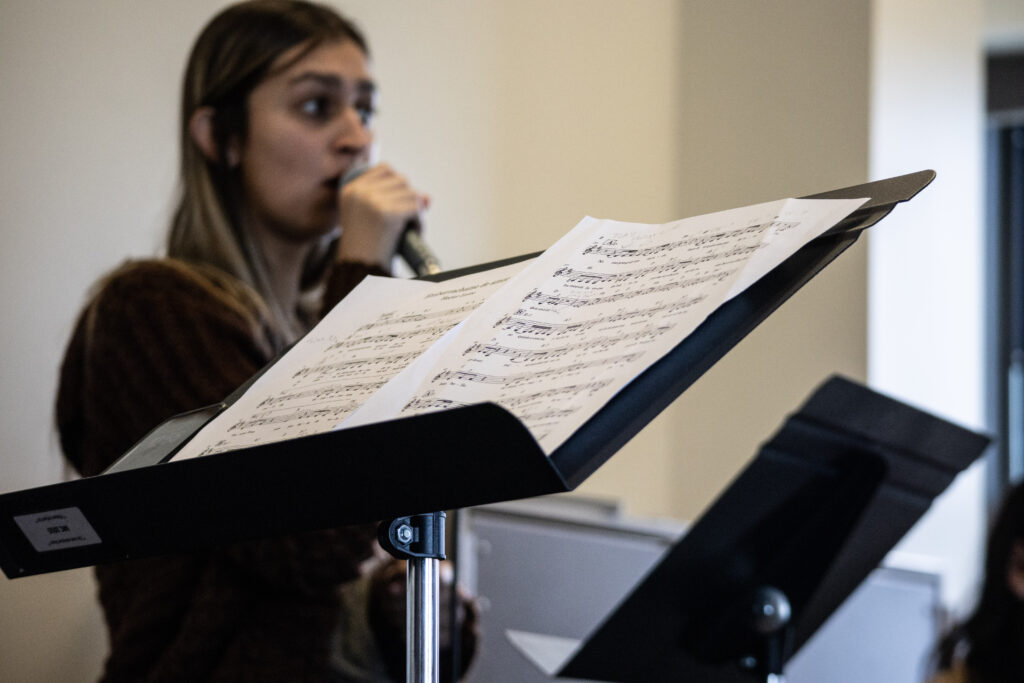
“It’s the people that make it like an amazing overall music program,” Gray said. “Especially the jazz program. The professors, the students. It’s an amazing community.”
Through their time together, the jazz players at Loyola — students and professors alike — all attest they’ve been changed by their time together —for the better.
“When I got here, I wanted to be an environmental science major and only focus on that,” Egmont said. “Playing music here has opened me up to a whole other realm of history, art, activism and things that I just would not have gone after if I had closed myself off and not tried to play anywhere else.”
Egmont, who will be graduating this spring, said she now plans to pursue music professionally after her time at Loyola.
“I think at a lot of music schools, when there’s music-making happening, there’s a judgemental, dark or competitive nature that we don’t have here,” Egmont said.
The jazz program’s next performance will be the jazz showcase on Friday, April 19. Tickets start at $15 for the general public.

